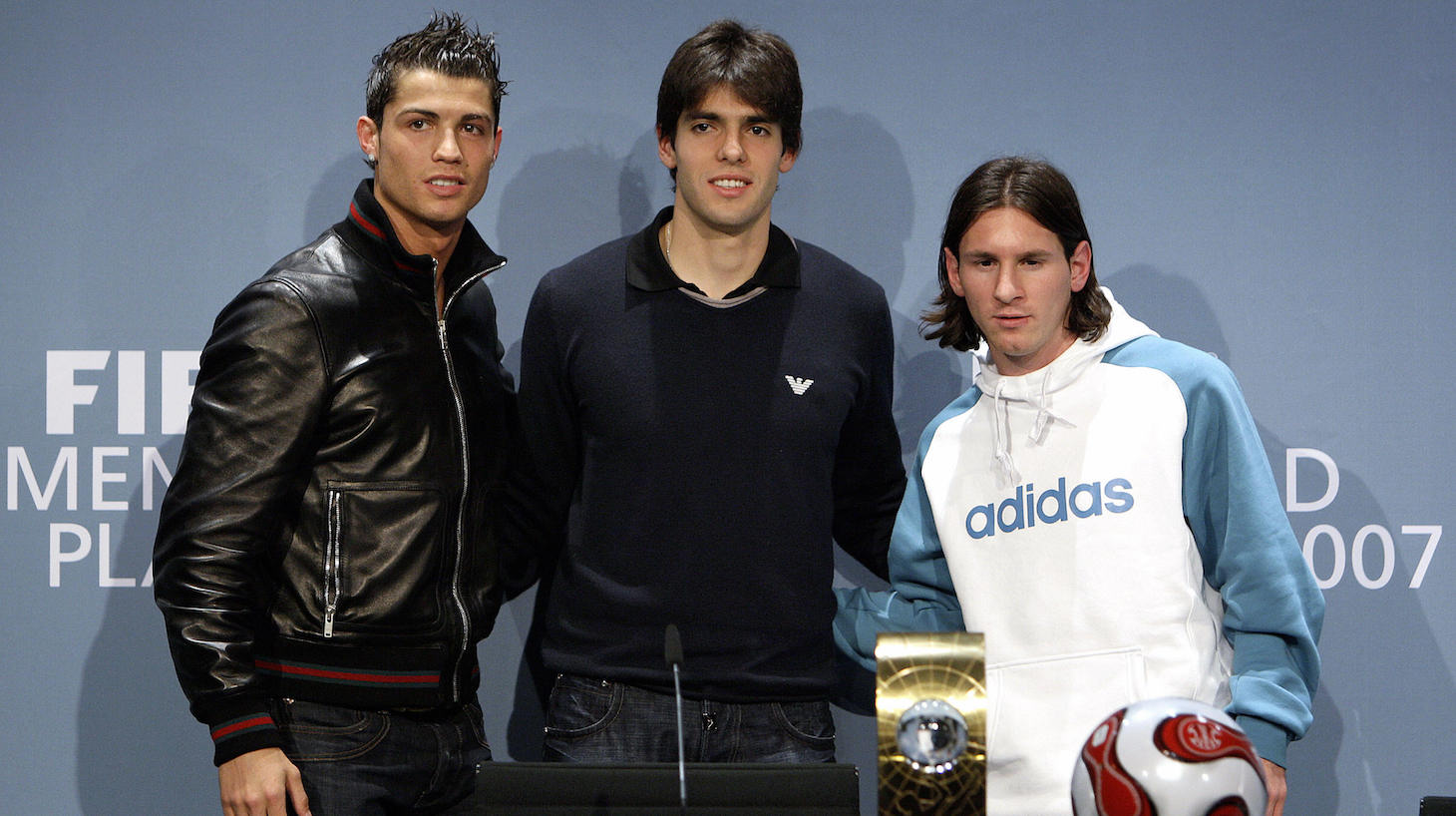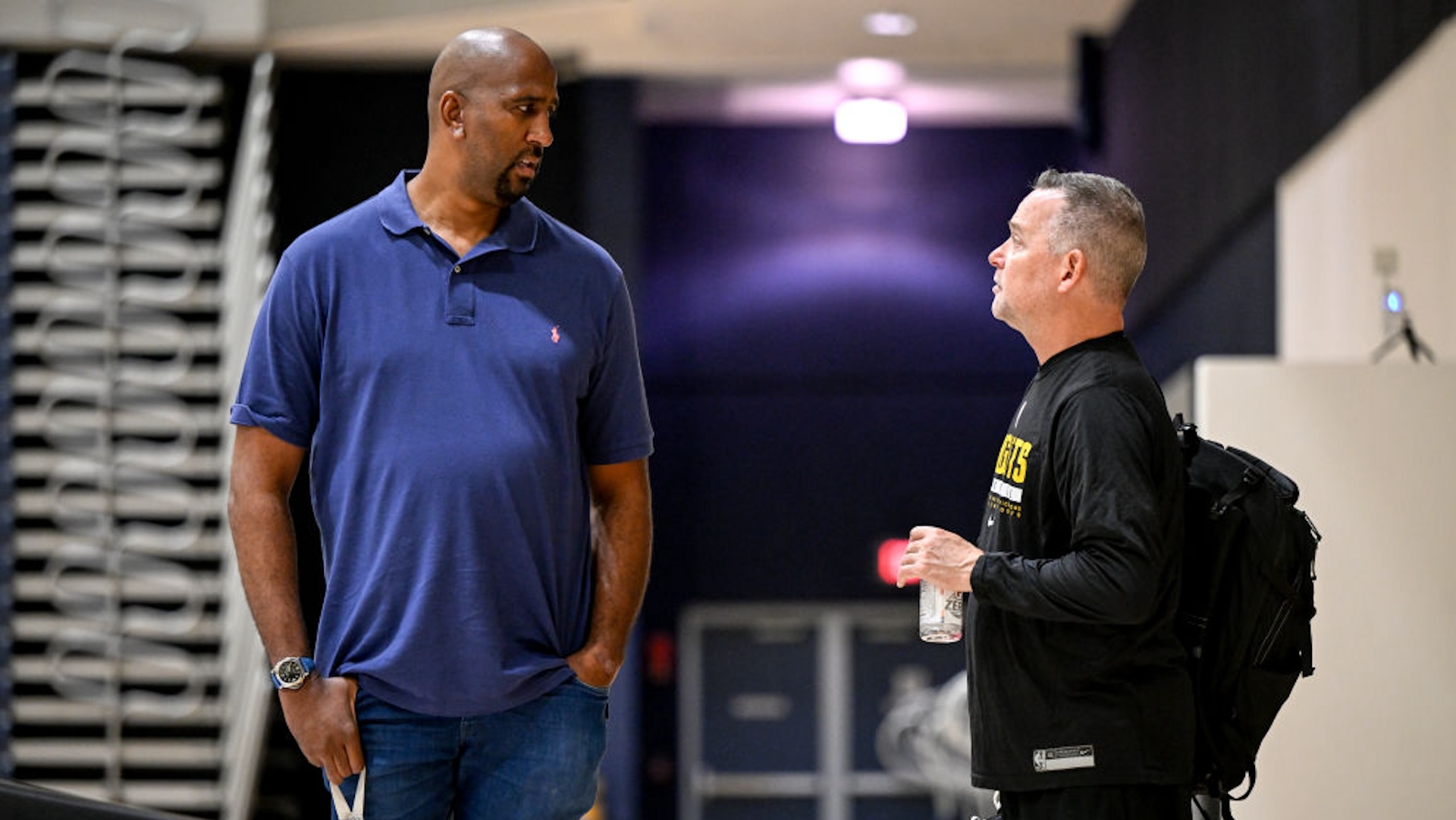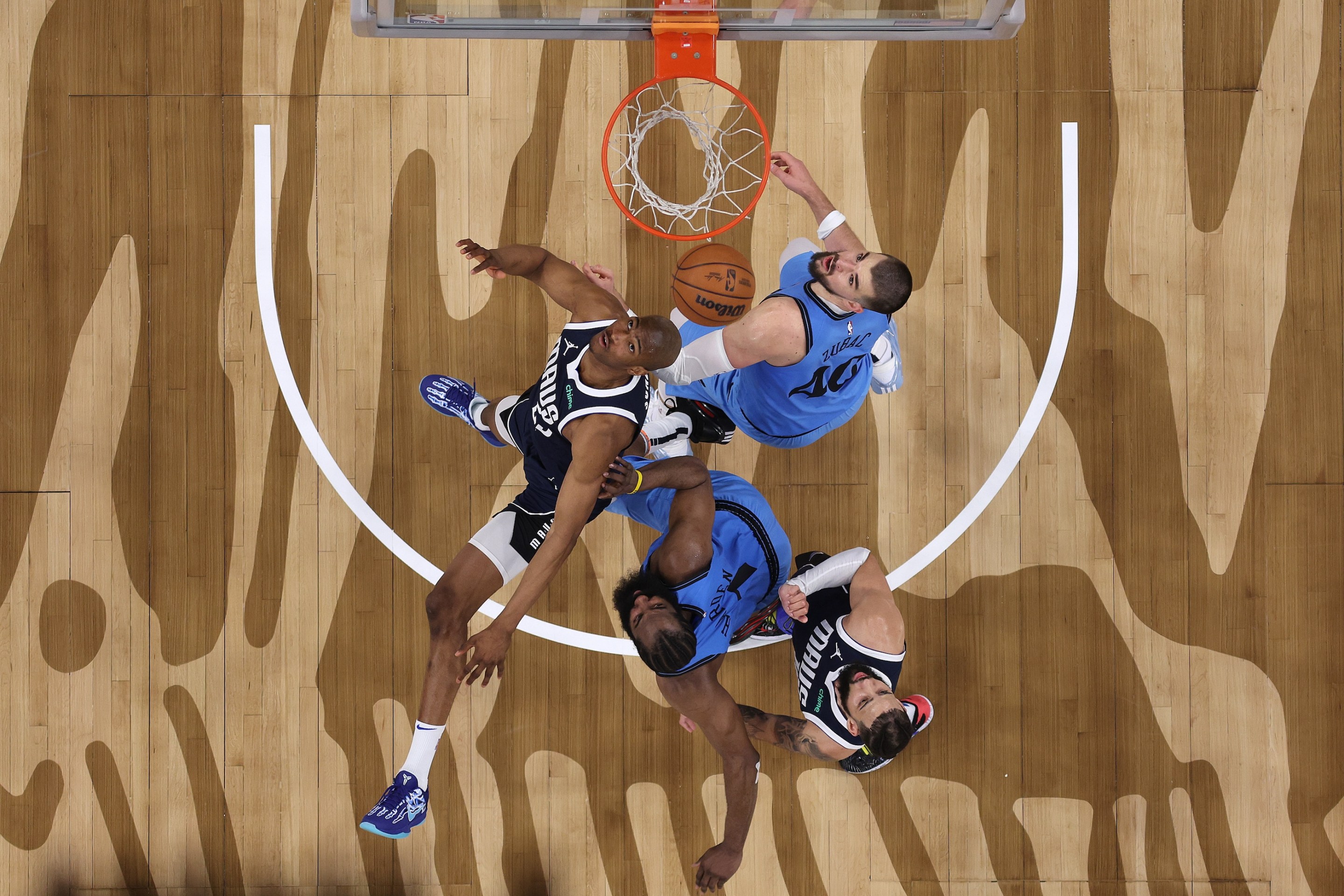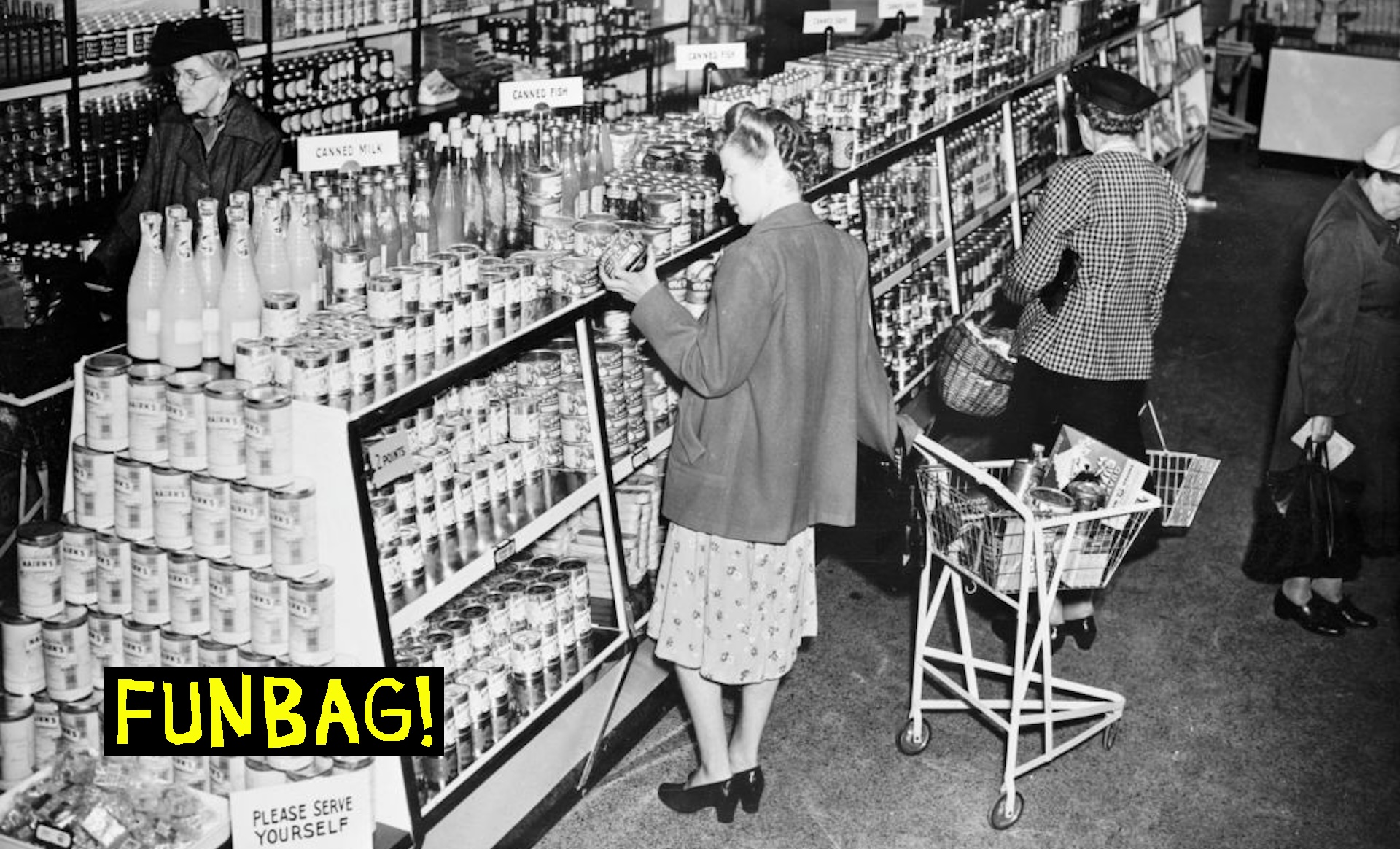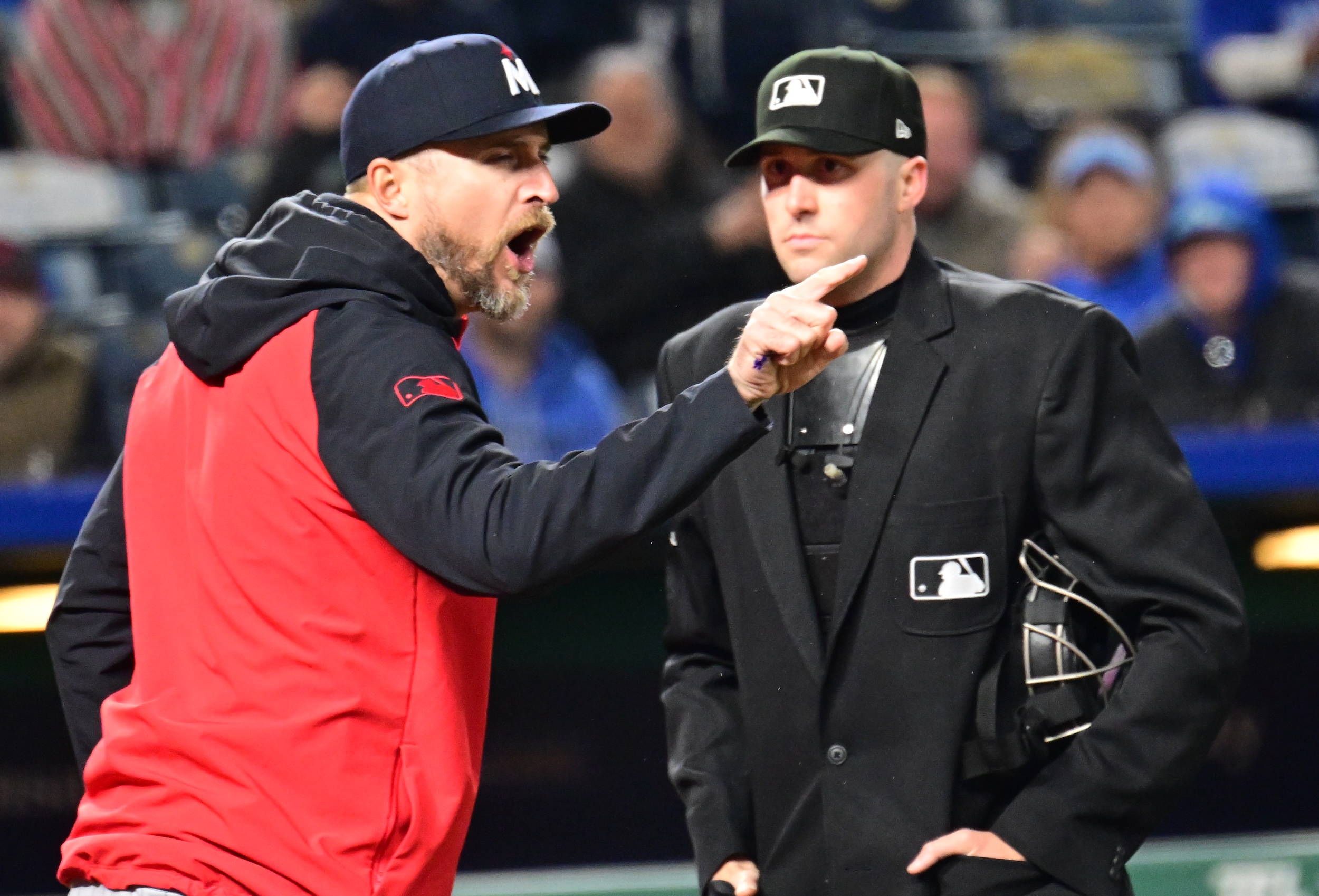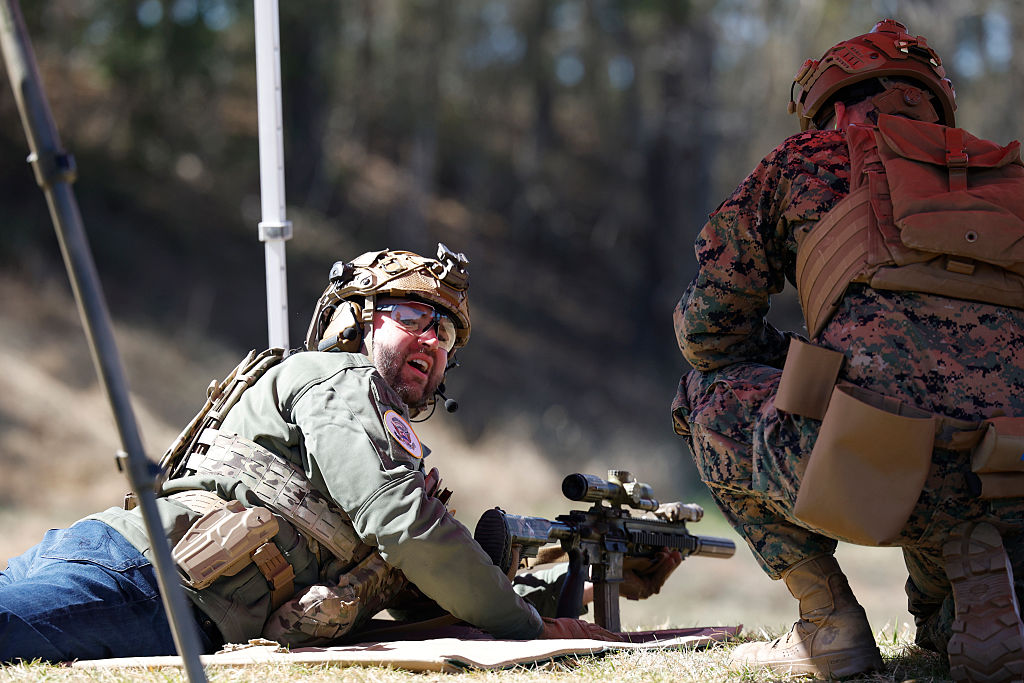On Tuesday, Cristiano Ronaldo's Manchester United was eliminated from the Champions League by Atlético Madrid. The week prior, Lionel Messi's Paris Saint-Germain got knocked out of the same tournament by Real Madrid. This means that for the second consecutive season, neither of soccer's two biggest names will feature in the quarterfinals or beyond of the sport's biggest competition. Short of their retirement—or their announced signing in MLS, which is the same thing—this is about as clear a marker we'll get that the Messi-Ronaldo era is over.
It's always a dangerous thing to claim some definitive end to a thing that is not in fact definitively over—the pair are still playing, of course, and at a high level at that. If it feels easier this time it's because, quietly maybe, the Messi-Ronaldo era has been in some sense "over" for a while already. Again, this is the second Champions League season in a row in which Ronaldo's and Messi's names have been absent when the game's lights shine brightest. The season before those two, only Messi made it out of the round of 16, at which time Barcelona got steamrolled, 8–2, in a one-legged quarterfinal against Bayern Munich. You have to go back to the 2018–19 campaign for the last time both Ronaldo and Messi made it at least to the UCL quarterfinals. So for three seasons now, both of these two stars have been almost wholly irrelevant in the main competition in the game.
This was decidedly not the case when Ronaldo and Messi still ruled the land. In the 11 UCL tournaments between the 2007–08 and 2017–18 seasons, a team led by either Ronaldo or Messi won the title eight times. During the same stretch, one or the other won the European Golden Boot—awarded to the most prolific league goalscorer on the continent—nine out of 11 times. And not only did Ronaldo or Messi win 10 of the 11 Ballons d'Or handed out from 2008–18, the two finished first and second in the final voting nine times as well. This is what makes the last few years such a stark contrast to what came before. When soccer really belonged to Ronaldo and Messi, they owned it all.
Meanwhile, back in the present, Ronaldo and Messi have both had seasons to forget. Unless he scores eight goals in United's final nine matches of the Premier League season, Ronaldo will fail to score at least 20 league goals for the first time since 2009. (That season, he nonetheless led the Red Devils to an EPL title and a trip to the UCL final, where they lost to Messi's Barça.) For his part, Messi has an almost unbelievably paltry Ligue 1 goalscoring record that presently stands at two. It is true that his 10 assists is tied as the highest figure in France, and his visionary passing is part of the reason why PSG enjoys a 15-point lead atop the Ligue 1 table. But there is no denying that PSG's season, and Messi's performance in it, has been a monumental disappointment.
Even aside from their individual stats, the most notable thing about Ronaldo and Messi at this stage is how incidental they've felt to the broader European soccer season. This didn't seem like it would be the case early on. The pair's respective transfers to Man Utd and PSG were two of the biggest moves of the window last summer. In United, Ronaldo returned to the most popular club in the most popular league competition in the sport. In PSG, Messi formed what looked like it would be a historically potent attacking trident alongside Neymar and Kylian Mbappé. But instead of bringing excitement and inspiration and confidence to their teams and fanbases, both signings seemed more than anything to heap on their teams the burden of obligation.
The thinking goes something like this: United has Ronaldo now, so it has to compete with Man City and Liverpool and Chelsea at the top of the table, it has to finish in the top four easily, it has to win big and win now, no excuses. PSG has Messi now, so it has to be beautiful, it has to stun and amaze, it has to win the Champions League, no excuses. It doesn't matter that freighted expectations have for years kept both United and PSG from their goals, and that demanding results is far less effective at achieving success than a clear-eyed focus on process, and that the versions of Ronaldo and Messi that leapt over impossibly high demands with ease haven't existed for several years now. PSG and United thought they had signed two players capable of lifting their clubs to new heights. Instead, so far the pair has turned out to be a couple massive weights.
None of this means that Messi and Ronaldo are bad players now, or that their new clubs were wrong to sign them, or that the end of the duo's hegemonic period means they'll never again touch greatness. Both of them are still very good on the pitch. In spite of the more dramatic accusations that have arisen during especially low points, both have performed pretty well for most of the season. What's more, it is absolutely possible that one or the other's defining career moment is still on the horizon, since both should take incredibly strong national teams to the World Cup at the end of this year. (Argentina has already qualified, though Portugal will have to come out on top of a four-team playoff.)
But even if Argentina wins the World Cup or a revamped PSG wins the UCL or Man Utd has a couple amazing transfer windows and somehow wins the Premier League, it would be a postscript on an era that has already passed. Messi and Ronaldo are no longer the players they once were, and they'll never be able to recapture that magic. Soccer looked one way back when they were its stars, and it hasn't looked like that for a good while now. Should they once again find themselves spotlighted on one of the stages they once called home, I don't doubt that either of them would be capable of a performance for the ages. But it would be a swan song, a final memory to commemorate what has already passed, the last flickers of color in the sky before the sun finally sets and day turns to night.
